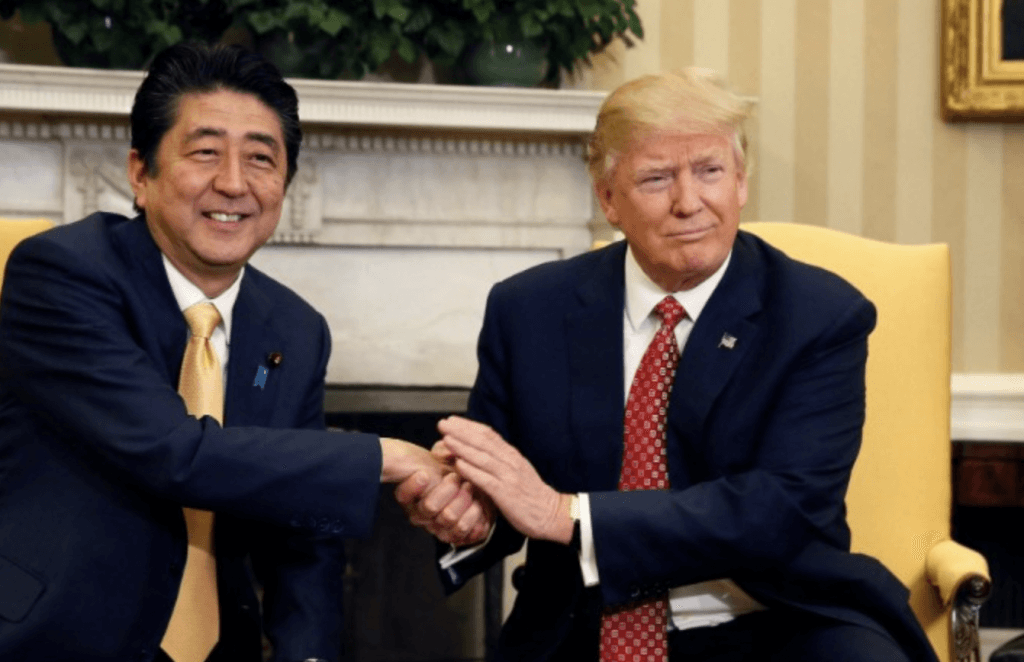
Image: LN24INT’
Japan’s Prime Minister, Shigeru Ishiba, is actively seeking a meeting with President Donald Trump this month, signaling a strong desire to continue the close relationship between Japan and the United States that was nurtured during Trump’s first term in office. Ishiba, who took office earlier this year, is eager to build on the legacy of his predecessor, Shinzo Abe, whose close ties with Trump helped to bolster Japan’s security and trade interests on the global stage.
The announcement of Ishiba’s intention to meet with Trump comes as Japan faces a number of significant international challenges, including the growing security threat from China, ongoing tensions on the Korean Peninsula, and global economic instability. For Ishiba, strengthening Japan’s alliance with the United States, particularly with a leader like Trump who has shown a strong commitment to confronting Chinese aggression and promoting regional security, is seen as essential for Japan’s future.
The late Shinzo Abe, Japan’s longest-serving prime minister, was known for his close and often personal relationship with Donald Trump. Abe was one of the first foreign leaders to visit Trump after his 2016 election victory, and he worked closely with the former president throughout his tenure to secure key trade deals, strengthen Japan’s defense posture, and ensure that the U.S.-Japan alliance remained a cornerstone of regional stability in East Asia.
Abe’s diplomatic efforts with Trump were widely praised in Japan, and his leadership was credited with helping Japan avoid major international confrontations while strengthening its economic and military ties with the United States. Now, Ishiba, who has long been an advocate for stronger defense cooperation with the U.S. and for a more robust Japanese foreign policy, appears poised to follow in Abe’s footsteps.
One of the key issues that Ishiba hopes to address in his meeting with Trump is the growing security threat posed by China. Over the past several years, China has significantly increased its military presence in the South China Sea, expanded its influence in Asia, and ramped up its aggression toward Taiwan. Japan, which is within close proximity to these flashpoints, is particularly concerned about China’s increasingly assertive behavior.
Ishiba has already signaled his intent to strengthen Japan’s military capabilities and deepen cooperation with the U.S. on defense matters. During his campaign for office, Ishiba called for a review of Japan’s defense strategy, advocating for a stronger military posture and increased defense spending. He also highlighted the importance of a “free and open Indo-Pacific,” a concept championed by both Trump and Abe as a way to counter China’s rising influence in the region.
A meeting with Trump could be an opportunity for Ishiba to reinforce Japan’s commitment to regional security and discuss ways to deepen U.S.-Japan cooperation on defense, particularly in the face of increasing Chinese aggression.
On the economic front, Ishiba is likely to continue the work started by Abe to strengthen the U.S.-Japan trade relationship. While Trump’s administration initially pushed for a “trade war” with several of its key partners, including China, Japan, and the European Union, Trump and Abe managed to negotiate trade deals that were seen as mutually beneficial for both nations.
For Japan, access to the U.S. market is critical, and the Trump administration’s focus on fair trade and reducing trade imbalances aligned with Japan’s priorities. Ishiba, who has expressed concerns about Japan’s reliance on a few key export markets, is likely to seek further opportunities to deepen economic cooperation with the U.S., especially in areas like technology, defense, and clean energy. A face-to-face meeting with Trump would provide an ideal opportunity to discuss future trade deals and ensure that Japan’s economic interests are safeguarded
As Japan navigates an increasingly unpredictable global landscape, Ishiba is also keenly aware of the shifting dynamics in international relations. The Biden administration’s policies, particularly in Asia, have raised questions about the future of U.S.-Japan relations, as Biden has prioritized multilateralism and closer ties with China. In contrast, Trump’s “America First” approach, while confrontational, focused on protecting American interests without compromising the interests of allies like Japan.
Given Trump’s unorthodox style and his emphasis on bilateral, rather than multilateral, agreements, Ishiba likely believes that a meeting with the former president could reaffirm Japan’s position as a key partner to the U.S. and ensure that Japan’s priorities, especially regarding security and trade, are front and center.
Conclusion
Prime Minister Ishiba’s request for a meeting with Donald Trump underscores Japan’s desire to continue a strong, secure, and economically prosperous relationship with the United States. Following in the footsteps of Shinzo Abe, who cultivated one of the closest ties between Japan and the U.S. in modern history, Ishiba aims to ensure that Japan’s interests are well-represented in the global arena—particularly in the face of mounting geopolitical challenges in Asia.
As Japan navigates a complex and shifting international landscape, strengthening ties with the U.S. and reasserting its influence in the Indo-Pacific region are seen as key to securing the nation’s future. Whether or not Ishiba’s meeting with Trump results in concrete agreements, it is clear that Japan’s leaders are determined to maintain strong relations with the United States and ensure the enduring strength of the U.S.-Japan alliance.
Get the latest of our Loveworld News from our Johannesburg Stations and News Station South Africa,LN24SA
Related Posts
Some description text for this item
